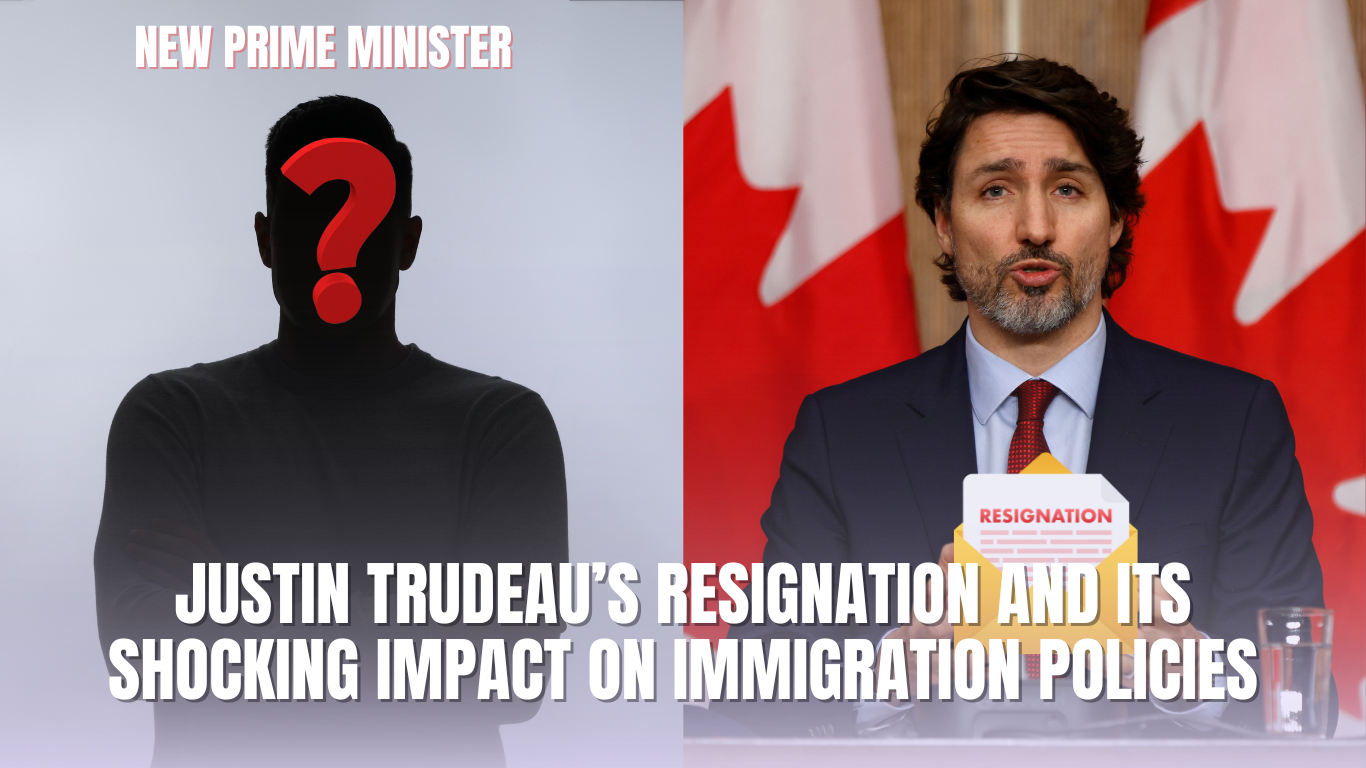Canada in Turmoil: Justin Trudeau’s Resignation and Its Shocking Impact on Immigration Policies

Canada’s immigration landscape is about to face unprecedented uncertainty following Prime Minister Justin Trudeau’s resignation. With significant changes on the horizon, what does this mean for aspiring immigrants?
A Sudden Shift in Leadership
After nearly a decade in office, Justin Trudeau’s resignation has sent shockwaves through Canada’s political landscape. Trudeau, known for his progressive immigration policies, played a pivotal role in shaping Canada as a global leader in welcoming immigrants. His tenure saw record-breaking immigration targets, expansion of refugee resettlement programs, and policies promoting international student opportunities.
However, his departure marks the beginning of a transitional period. Parliament is prorogued until March 2025, leaving crucial immigration decisions in limbo. With new leadership on the horizon, including potential successors like Chrystia Freeland and Mark Carney, questions are mounting: Will Canada’s immigration policies face a dramatic overhaul?
Immediate Impacts on Immigration
1. Reduced Immigration Targets
Canada recently announced a reduction in immigration targets:
- 395,000 permanent residents in 2025
- 380,000 in 2026
- 365,000 in 2027
Trudeau’s exit could accelerate these cuts. A new leader might prioritize balancing immigration with housing and social service pressures, potentially tightening the path to Canadian permanent residency.
2. Stricter Temporary Work and Study Permits
Recent policies aimed at reducing the share of non-permanent residents from 6.5% to 5% could become more rigid. International students are already facing 10% intake caps, and temporary foreign workers are encountering stricter permit requirements. Without Trudeau’s leadership, these measures could harden, limiting opportunities for newcomers.
3. Refugee and Asylum Cases Face Uncertainty
The Trudeau government championed refugee resettlement, making Canada a haven for displaced individuals. His resignation, coupled with growing political polarization, could lead to a significant reduction in refugee admissions. As U.S. President-elect Donald Trump’s mass deportation plans loom, Canada may struggle to maintain its global humanitarian commitments.
A Politicized Immigration System
With Trudeau’s departure, immigration is poised to become a critical election issue. Conservative leader Pierre Poilievre has pledged to align population growth with housing and job targets, signaling a possible shift to more restrictive immigration policies. Meanwhile, the Liberal Party’s future leader will face immense pressure to restore public confidence in the immigration system.
This political tug-of-war could exacerbate delays in processing immigration applications, heightening uncertainty for over 2 million individuals currently awaiting decisions on their status.
How Immigrants Can Navigate This Transition
While Canada’s immigration system undergoes significant changes, prospective immigrants and current residents must take proactive steps:
- Stay Updated: Follow official announcements from Immigration, Refugees and Citizenship Canada (IRCC) to stay informed about policy changes.
- Seek Professional Guidance: Consult licensed immigration consultants to understand how the evolving landscape affects your status or application.
- Explore Alternative Programs: Provincial Nominee Programs (PNPs) or family sponsorship pathways may offer opportunities amidst stricter federal rules.
The Path Ahead
Trudeau’s resignation has left a leadership vacuum at a critical time for Canada’s immigration system. With housing and healthcare pressures mounting and political polarization deepening, the future of immigration policies remains uncertain.
Aspiring immigrants must prepare for a more competitive landscape. Whether Canada maintains its reputation as a welcoming nation or adopts a more restrictive stance depends largely on its next leader. For now, vigilance and adaptability are key for those hoping to call Canada home.
Stay tuned as this story unfolds—Canada’s immigration future hangs in the balance.
Note: This information is for general guidance only and does not constitute financial or legal advice.


